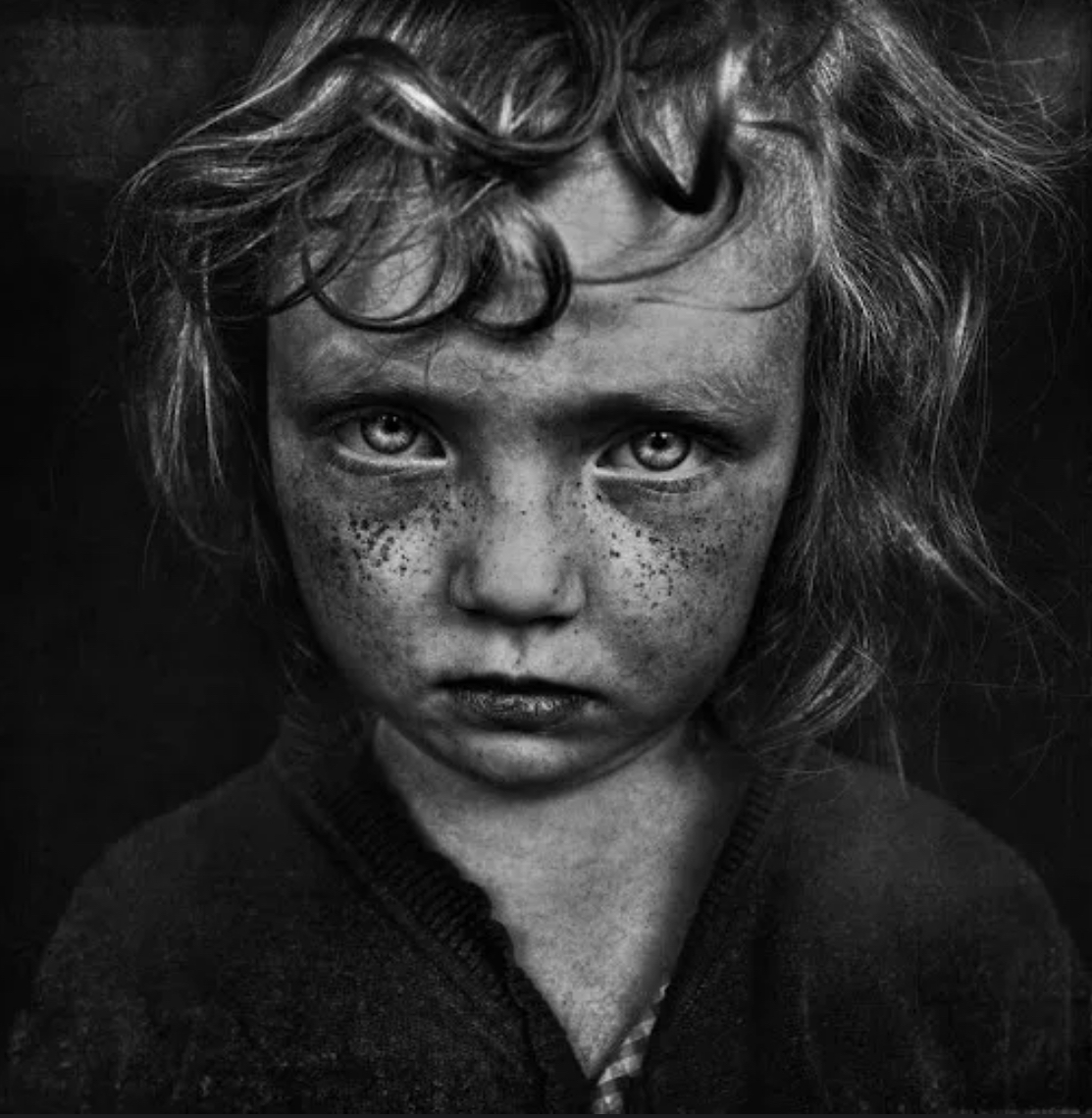By: Christopher Maffei
There is, I suppose, no longer any serious debate among the thoughtful few: the American social and economic order is not evolving, but devolving—being dragged, kicking and squealing, back to the squalid conditions of its pre-industrial infancy. What was once an aspiring civilization has become a grotesque parody of progress, a grand machine running in reverse, devouring its own pretensions to modernity.
Let me state at once that I make no apologies for defending my children. The act of protecting one’s offspring is so elemental that to seek forgiveness for it would be beneath contempt. I did what any father of breeding and conscience would do: I attempted to save them from danger. And as for any “system” that dares to sanctify their harm—I do not recognize it, now or ever. A structure so corrupted forfeits all claim to legitimacy; one does not reason with the plague.
The welfare of my children is my single concern. All else—law, bureaucracy, social approval—is so much provincial noise.
But before we proceed, one must first grasp where my children reside: within a social order that has replaced justice with a farce of administration, and decency with an industry of cruelty. They are trapped in that vast Californian experiment in moral decay—a place whose courts are temples of corruption, its officials high priests of hypocrisy. These institutions, much like every American enterprise that fancies itself noble, are diseased to the core; their every touch spreads poison. Chris Hedges, that rare American still capable of clarity, once remarked that the courts are a “judicial burlesque”—and he was correct. They simulate law as a corpse simulates life.
The end, one feels, is not distant. The charade is approaching its exhaustion; the collapse, its final curtain. California’s courts now resemble the old freak shows of the nineteenth century—grotesque exhibitions meant to distract the masses while the state robs the coffers and shoots its citizens with bureaucratic precision. It is all so tediously American: vulgar violence wrapped in moral sermonizing, barbarism performed with administrative flair.
In that radiant wasteland, the notion of the common good has been eradicated altogether. California is a republic of the self—each soul a merchant of its own vanity, the collective dismissed as an inconvenience. The courts are staffed by the most agreeable species of mediocrity: the compliant liberal, eager to recite the slogans of progress while stamping approval upon acts of degradation. Their function is simple—to give the appearance of civilization to a process that is anything but.
My own case is but a microcosm of this general rot. My children were placed in the care of the unfit, and when danger threatened, the machinery of the state labored not to rescue but to conceal. The law, in its boundless cowardice, chose to protect its own errors rather than living children. Their rights were not merely ignored; they were ceremoniously annulled to safeguard the reputations of bureaucrats whose virtue exists only on letterhead. And now, as ever, the full might of the Californian apparatus is dedicated to suppressing the truth—because the truth, in such places, is lethal to those who wield power.
One must disabuse oneself of the illusion that any of this is aberrant. Corruption and brutality are not Californian scandals; they are Californian culture. The society professes one morality and practices another, and the public—stupefied by the local press—applauds the contradiction. The journalists, those salaried illusionists, present to the world an image of sunlit virtue: the land of “teddy bears and rainbows,” as they would have it. One imagines that a citizen in Tokyo, hearing their reports, would picture California as some Arcadian paradise rather than the gilded asylum it truly is.
This deceit, of course, is not accidental. Journalists must believe in the decency of the institutions that employ them; otherwise, they would be forced to confront the abyss beneath their own feet. To preserve this fragile illusion, they construct elaborate mythologies—what Plato might have called the dance of shadows on the cave wall. It allows them to sleep. It allows them to send their own children to schools they pretend are safe. It allows them to believe that justice is not a corpse, but merely resting.
In reality, the Californian courts are a criminal enterprise ennobled by custom and ignorance. Were history to repeat one of its more lucid moments—say, the tribunals at Nuremberg—these magistrates and administrators would find themselves on the gallows, choking on the same rhetoric they now deliver from the bench.
What befell my children is tragic, yes, but hardly exceptional. It is merely another note in the symphony of American degradation. Corruption, violence, falsified reports, the trafficking of the helpless—all are daily transactions in that state’s moral marketplace. The prisons, run by villains of such character as would shame even a colonial gaoler, are laboratories of cruelty. There, men are set upon each other like beasts for the amusement—and profit—of their keepers.
One hears, from time to time, of gangs of officers styling themselves with names like “The Executioners”—a vulgar honesty, at least, from a class that usually hides its savagery behind acronyms. These are not outliers; they are the distilled essence of the society that produced them. Murder, racism, and segregation are not deviations from doctrine; they are the doctrine. Violence is the American grammar of order.
The whole thing could, in theory, be corrected easily. But of course it will not be corrected, because failure is profitable. A system that thrives upon collapse cannot endure success; it would starve upon it. The cruelty, therefore, is deliberate—an economic necessity disguised as policy.
One might hope that within such a nightmare there would exist a few souls of conscience: judges, lawyers, even clerks who would resign rather than serve the machine. But no; one asks too much of a population trained in moral anesthesia. These are not men and women in the ordinary sense—they are functionaries of despair, products of a nihilism so total it mistakes its own emptiness for sophistication. Whether they are rich or poor, educated or ignorant, it matters not; the corruption is democratic.
Hence the particular cruelty of the Californian justice system—it is the cruelty of people who no longer know that they are cruel. Their indifference is colder than hatred. Compared to them, even the old tyrannies of Europe seem almost humane. At least under the Stasi, one did not freeze to death on the pavement while the state congratulated itself on its virtue.
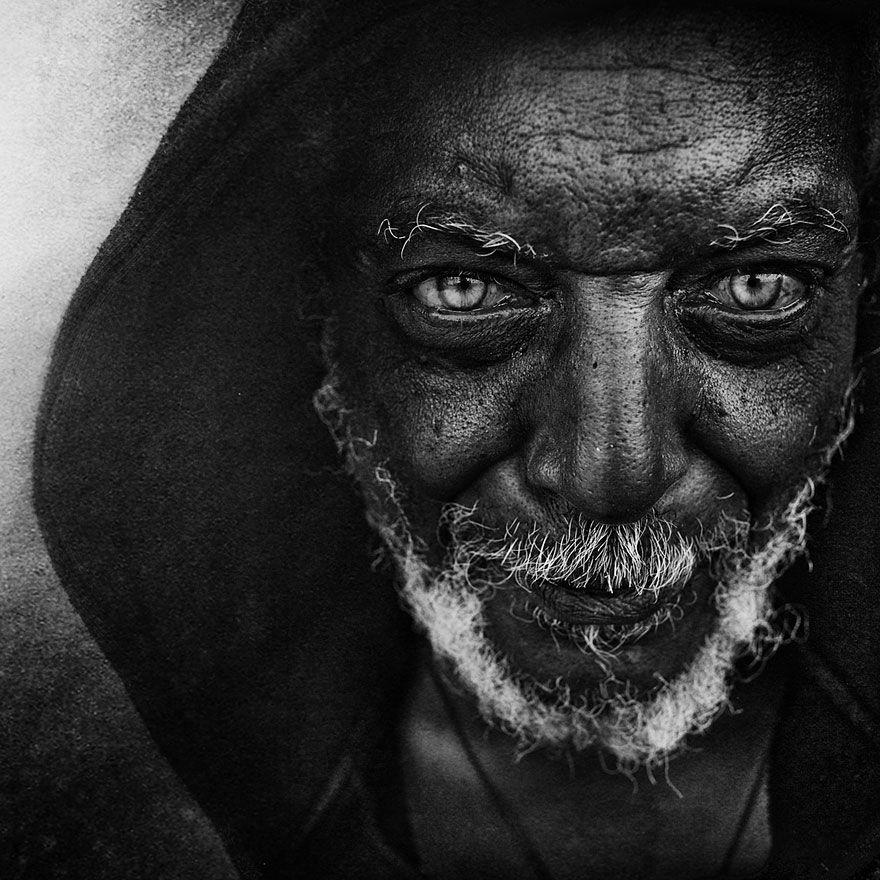
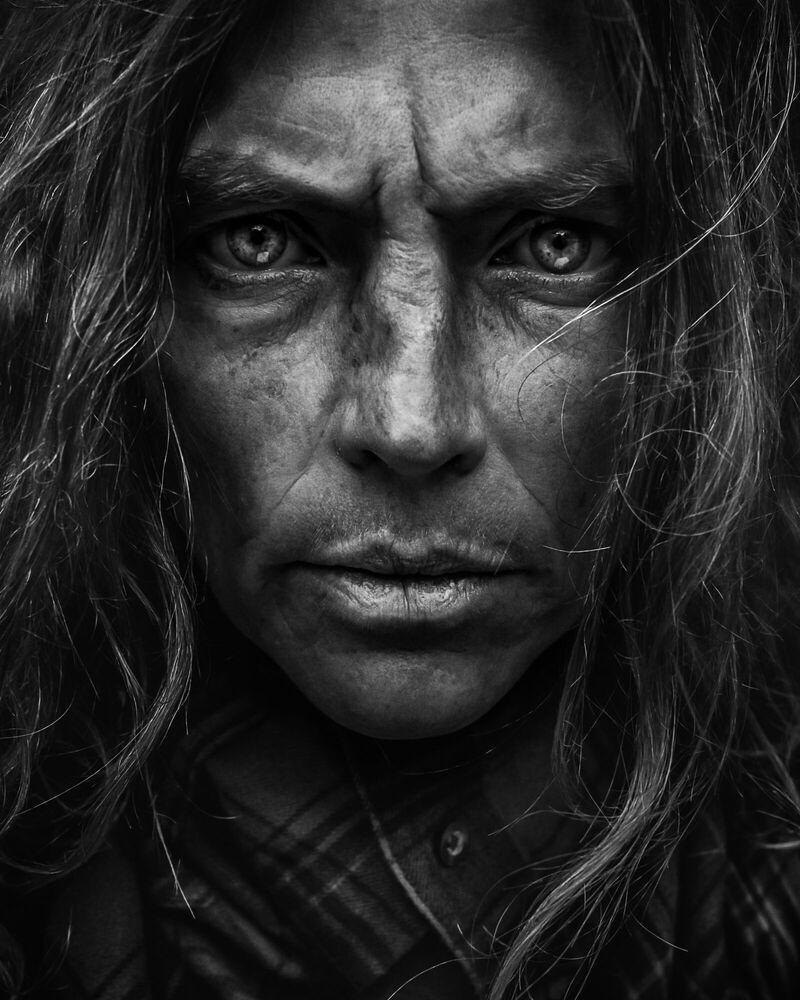
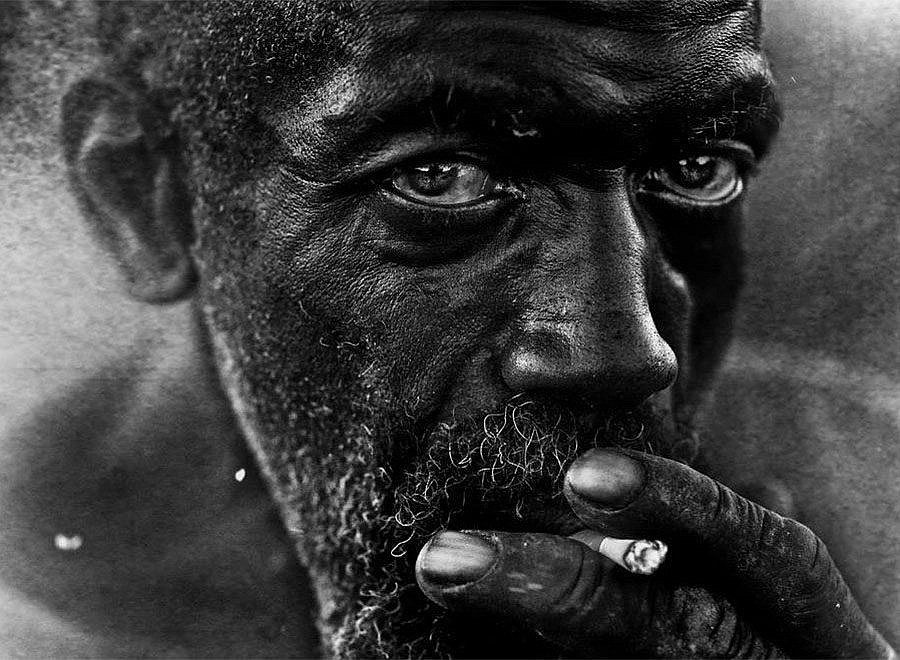

“On the Decay of the Californian Commonwealth”
In truth, what we are witnessing is not progress but the languid collapse of a civilization, accompanied by the vain legal theatrics of those who imagine the unsalvageable might yet be reformed. One might as well attempt to mend a rotting edifice with lace and sentiment.
It is within this derelict contrivance that my own children are confined, as though imprisoned in a domain overseen by ruffians masquerading as administrators—a criminal rabble elevated by bureaucracy.
California, for its part, delights in fashionable activism, where its citizenry—clutching soy lattes and moral pretensions—weep for the fate of lapdogs while their fellow men perish in the gutters. It is a society that pampers pets and neglects people; a grand theatre of compassion devoid of substance.
The state now drifts between oligarchy and autocracy, its populace quarrelling over the narcissism of trivial differences while its cities dissolve into squalor. It is a spectacle at once grotesque and pitiable.
Before I endeavored to rescue my children from an abusive mother, this was already the tenor of Californian life: a moral wasteland masquerading as progress. To my European interlocutors, I must emphasize—there is no comparison. Across the Atlantic, society still possesses some vestige of civility, solidarity, and restraint. In California, one encounters instead decadence without charm and despair without dignity—a political carnival of decline such as Fritz Stern’s “politics of cultural despair” could scarcely have envisioned in full.
Viewed with even the faintest objectivity, California is no country for children, either in mind or in body. Reform is a fantasy whispered by those too timid to admit the truth: the system is bankrupt, and every attempted “fix” merely deepens the rot. Those with means flee to fortified enclaves or to the mirage of Texan safety, while the rest languish in polite ruin.
The decline advances slowly enough that its victims mistake decay for continuity—until the brutality intensifies, and the mob requires a scapegoat. Thus, the individual becomes the sacrificial offering to a collapsing state, condemned for the crimes of its architects.
A child born into poverty in California, descending into vice and addiction, is not met with compassion but blame. Whereas a civilized nation might intervene with mercy—as Norway perhaps still would—California prefers to condemn its poor as moral failures, thereby preserving the illusion that society itself remains unblemished.
This is the American genius: to punish the symptom and worship the disease. The media joins in chorus, exalting cruelty as sport, rejoicing in ruin with that distinctively American brand of Schadenfreude. In the end, the solitary sufferer bears the burden of a nation’s corruption—while the true causes remain unspoken, festering beneath a gilded facade of progress.

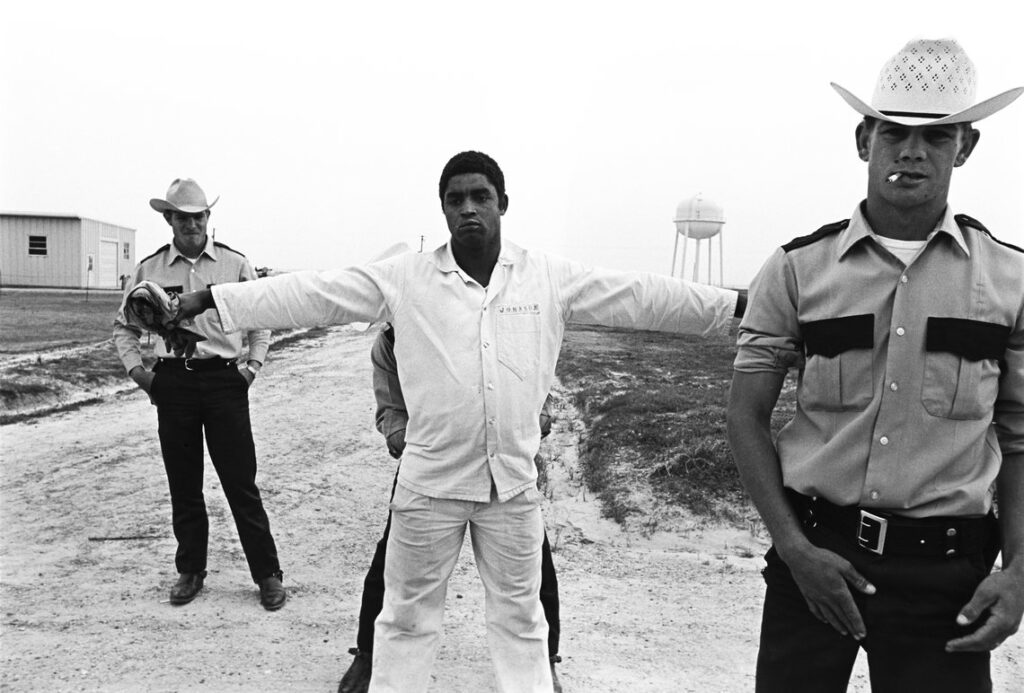
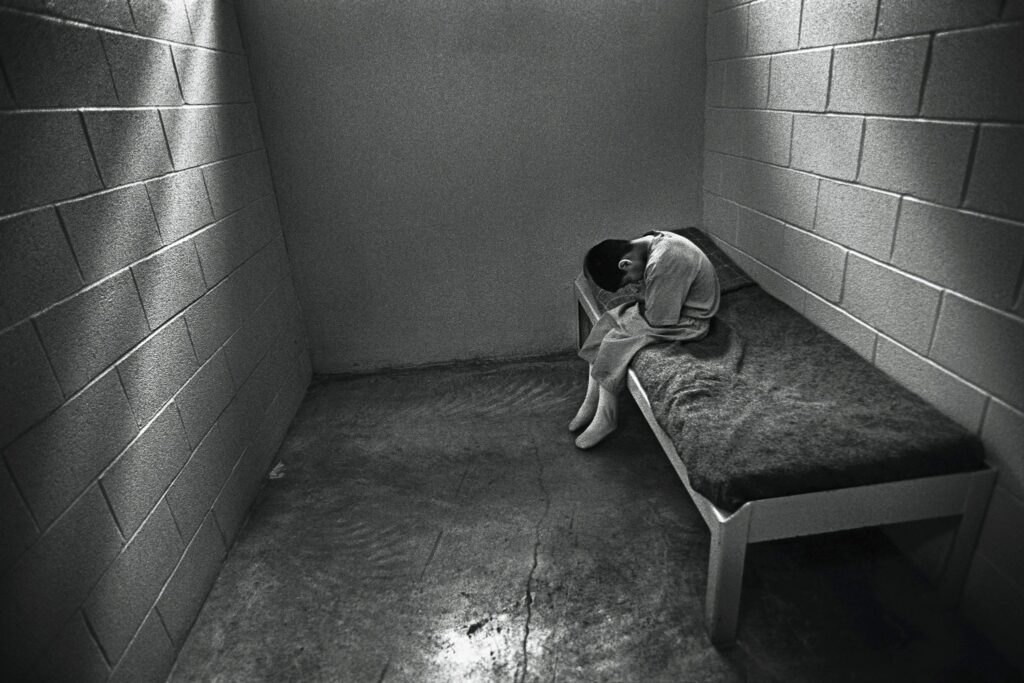
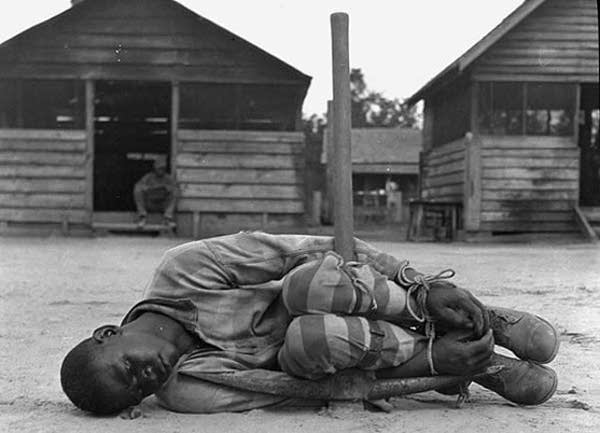
Dostoevsky, in one of his more enduring flashes of moral clarity, observed that a civilization is to be judged not by how it flatters its exceptional men but by how it treats its condemned. By such a measure, America must be accounted among the most primitive of societies—an empire of chains masquerading as a republic.
Chris Hedges, that rare journalist who still writes as if truth were not a commodity, once offered a glimpse into the American dungeon in his work Our Class. What he describes is not the administration of justice, but the meticulous cultivation of degradation. One can almost smell the horror: air rank with filth, men entombed twenty-three hours a day in cells scarcely fit for livestock, their hunger treated as a disciplinary tool. Rats and bureaucracy compete for dominion over these pitiful enclosures, and one suspects the rats are the more honorable of the two species.
Among these wretches, one keeps a mouse tethered to a string—a grotesque parody of companionship in a place that has extinguished the very concept of dignity. The guards, animated by that peculiar sadism that thrives in the morally stunted, amuse themselves with rituals of humiliation. The process, so I am told, is performed with bureaucratic precision, its indecency masked by routine. It is cruelty institutionalized, decorum draped over depravity like a flag over a corpse.
And yet, the American insists that this is justice. The irony would be amusing were it not so abominable. These institutions—if such a word may be used for structures so utterly devoid of civilization—possess neither moral foundation nor redeeming purpose. They are the logical outcome of a people who mistake efficiency for virtue and punishment for wisdom. Nobility, mercy, even the faintest echo of magnanimity—these are foreign concepts to the American gaoler.
Now, consider for a moment what this means for those who must live within such a society. Knowing the barbarism that festers beneath the polished rhetoric of “law and order,” imagine discovering that your own children are in danger within that same diseased system. What recourse remains? Would any man of sense or breeding entrust his beloved children to such custodians of decay? Would he appeal to these clerks of cruelty, these administrators of ruin, for protection?
I think not. Only a fool—or an American—would do so.
And yet, there are those who remain unconvinced. They wish to believe that these grotesqueries are confined to prisons, that the rot does not reach the courts or the classrooms, that somewhere in this republic of contradictions, morality still breathes. How touching, this naïveté—how tragically provincial.
Permit me, then, to illustrate further. In the provinces of this supposed “Union,” the judiciary does not merely preside over the poor—it consumes them. The courts of America are peopled by savages in suits, feral bureaucrats whose cruelty has been sanctified by custom and legitimized by federal blessing. Their victims are not merely the guilty but the vulnerable, and the spectacle of their suffering is conducted with the solemn pomp of a religious ceremony.
Consider, if you have the fortitude, the spectacle of a woman heavy with child—seven months into her pregnancy—bound hand and foot in the custody of these paragons of justice. Her body, made sacred by the life it carries, is dragged across the floor like contraband, her dignity spat upon by those who imagine themselves enforcers of order. Such scenes are not exceptional in America; they are its daily theater, its ritual reaffirmation that mercy has no place in its institutions.
It is a barbarism dressed in legality, savagery performed in the name of civilization. And the tragedy—perhaps the comedy—is that its perpetrators truly believe themselves virtuous.
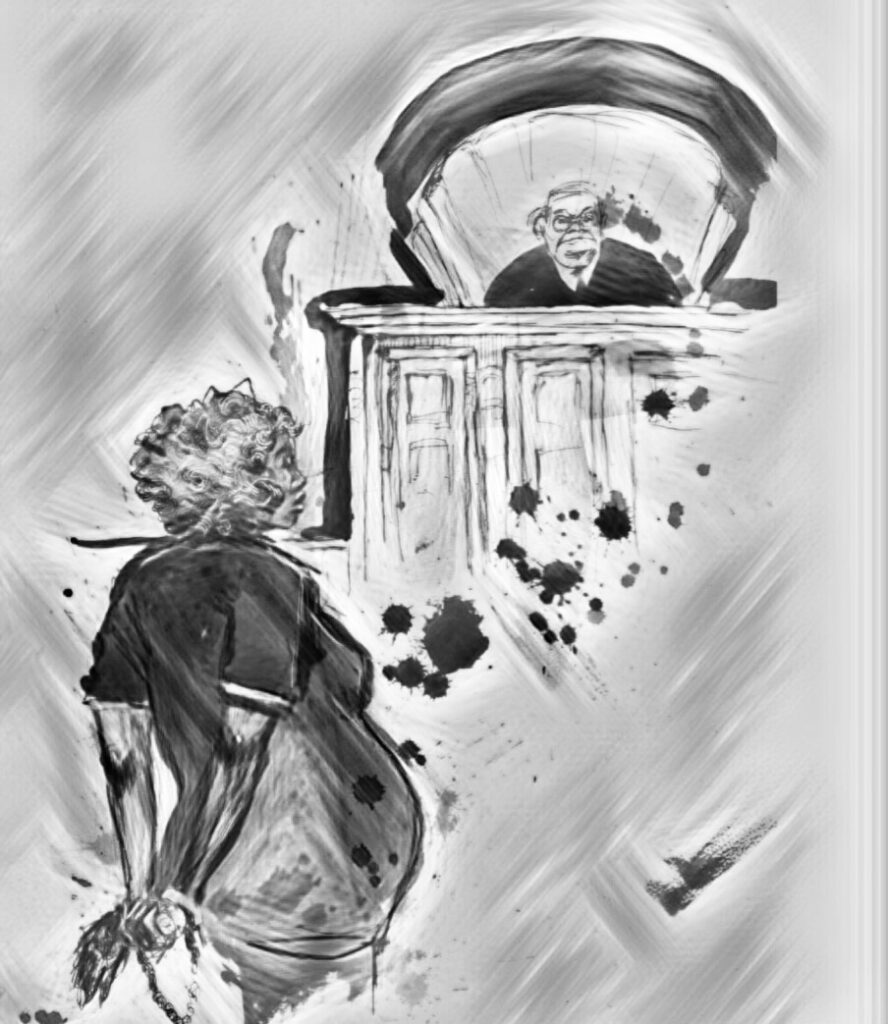
Imagine, if you will, a civilization so crude that it binds a woman heavy with child in chains, drags her across a concrete floor, and calls this justice. Such was the spectacle at a Texan detention center — that curious American temple to moral inversion — where a pregnant woman, Sophia Casias, seven months along, was marched in fetters before the guardians of the law.
Her body, frail under the weight of her unborn child, faltered upon the slick cement, and she collapsed. Her distress was answered not with assistance, but with that peculiar American mixture of vulgarity and sanctimony. A matron of the guard, finding herself momentarily possessed of divine authority, seized the woman by the hair and barked at her to rise — like some overseer on the periphery of empire, enforcing order upon the conquered.
One must imagine the scene: the sterile glow of the institutional lights, the rattle of chains, the whimpering of the prisoner, and presiding over it all — a judge, seated in official indifference. Not a man, but a fixture of the bureaucracy, observing degradation as though it were a matter of paperwork. It is not that he condones the cruelty; it is that he is incapable of recognizing it as cruelty.
This, I am told, passes for justice in America.
For my part, I should not have endured fifteen seconds in that chamber of mockery. I would have stood, brushed the dust from my coat, and left the proceedings to their barbarism. One cannot debate ethics with brutes in uniform; one can only leave them to drown in the swamp they call civilization.
And yet, this is not some isolated act of sadism. The American judiciary not only tolerates such spectacles — it requires them. Brutality is not incidental to their system; it is the ceremony by which they affirm their authority. The cruelty is procedural, the indignity codified, and the silence of the so-called federal guardians — the FBI, that modern inquisition of mediocrity — is as predictable as it is deafening.
Do not imagine, however, that this republic of degradation will long endure. A civilization that feeds upon its own cannot defend itself. When its enemies come — whether from the steppes of Asia or the frost of the north — they will find little resistance. The American will be too busy prosecuting his neighbor to notice the barbarians at his gate.
And when the reckoning arrives — when the marble courthouses crumble and the robes of the judiciary are torn to rags — the world will look upon these judges not as jurists, but as the petty executioners of a dying regime. History will hang them not for their power, but for their irrelevance. I will not attend, of course, but I shall observe in spirit, as one might witness the burning of a corrupt temple and remark only, “At last.”
Let us speak plainly: wealth provides no immunity from this contagion. The millionaire and the beggar tread the same defiled streets, inhaling the same air of decay. The Californian plutocrat, preening behind his hedges, walks upon the same moral ruin as the pauper at his gate. Here, the disease of anomie spares no class; it infects banker and beggar alike.
Indeed, the state profits from this collective self-destruction. Every broken home, every fractured bond, every soul driven to despair — all of it fattens the bureaucratic beast. California’s courts are not arbiters of order but shareholders in collapse. Their business is misery, and business is good. A loving family, that last remnant of civilization, is their sworn enemy, for love and loyalty do not generate revenue.
Thus the state parades its police as heroes and its judges as sages, all the while rewarding the very brutality that corrodes its foundations. What one beholds is not a society but a feeding frenzy — an orgy of moral cannibalism clothed in the rhetoric of progress.
And let us dispense, once and for all, with the pretense that these people constitute any kind of “elite.” They are not an aristocracy, not even an oligarchy — merely a bureaucracy of low birth and lower intellect. Their power derives not from greatness, but from vacancy. They are the residue left when nobility has been exiled and mediocrity enthroned. To compare them to the ancients — to invoke Olympus in their defense — is to insult the very concept of divinity.
They are, in sum, what every dying civilization produces: a class of small, vicious officials mistaking their paperwork for power, their pettiness for order, and their cruelty for virtue. The tragedy is not that they exist — such creatures always do — but that the nation worships them.
“What, then, was happening to my children?”
While I was occupied abroad—engaged, as civilized men must, working—the mother of my children saw fit to entrust their care to a creature wholly unfit for human company, let alone guardianship. Her own sister, a woman so eroded by vice and violence that she might more properly be described as a hazard than a relation, was appointed the custodian of innocence. One cannot imagine a more vulgar irony: the helpless placed under the charge of the unhinged, the tender entrusted to the deranged.
It would be too generous to call this negligence; it was moral suicide. The woman’s history of domestic turbulence was not hidden. It was simply ignored, as all unpleasant truths are in that glittering province of California, where inconvenient facts are smothered under bureaucratic indifference. When her collapse became impossible to conceal, the local machinery of “social protection” did what it always does—nothing of substance. In that dreary republic, they believe prison is the universal cure, though even there, the treatment is indistinguishable from the disease.
When I inquired of the mother where the children were, she lied with a confidence peculiar to those accustomed to impunity. I sensed deceit, of course—one learns to smell corruption as one smells decay—but evidence was then beyond my reach. So, as any man of resolve would, I returned to that miserable republic in order to see for myself.
I found my daughter anxious and withdrawn, her speech too young to carry confession but her eyes too old to hide it. My son, still an infant, bore the vague air of one who has brushed too near to peril. These were not the ordinary shadows of childhood, but the imprints of neglect.
In my brief return to America—two months spent amidst that nation’s pretensions of civility—I discovered that truth itself had become contraband. The mother, aware that I was seeking to expose the danger into which she had delivered our children, sought frantically to conceal what the state already knew: that my son had once been placed in mortal peril by her sister. A report of “endangerment” existed, filed away in some bureaucratic crypt, yet never shown to me. For to acknowledge the record would have been to admit their own failure, and in California, self-preservation trumps justice every time.
The incident was absurdly simple in its horror. Imagine: a child scarcely a year old, wheeled along one of the busiest roads in San Francisco by a woman so intoxicated that she could scarcely stand. One stumble, one moment’s slack in the trembling hand, and the child’s life would have ended beneath the wheels of modern progress. Witnesses watched as she staggered, cursed at the child, and collapsed upon a public bench, her charge left exposed to the indifferent mercy of strangers.
The police arrived, of course. They are always prompt when there is paperwork to be filed. They did what they do best—nothing. The creature responsible was neither restrained nor reprimanded; the father, whose right it was to know, was kept deliberately ignorant. Child Protective Services was notified, which is to say, the file was expanded and the problem buried. Bureaucracy had done its sacred duty: the illusion of action without the inconvenience of consequence.
In any society not wholly estranged from reason, such an incident would have provoked outrage. In California, it provokes only another meeting, another memo, another shrug.
And so we must pose the question: can the police protect one’s children? The answer is so obvious that only an American could fail to see it. The police, you see, do not exist to protect citizens; they exist to protect the police. The citizen’s safety is a decorative afterthought, invoked only when cameras are present or when the department’s reputation is at stake.
The Californian constabulary, with their polished badges and empty rhetoric, are an institution unto themselves—a fraternity of self-preservation. Their first loyalty is not to law, nor to justice, nor to decency, but to the preservation of their own image. The moment an officer errs, the entire apparatus descends to shield him, as a body shields its wound from air. To expect integrity from such a mechanism is to expect poetry from machinery.
It matters not if the victim is a child; the principle is sacred: protect the uniform, not the innocent. The police are aided in this deception by a compliant press, whose journalists peddle the mythology of heroism with the enthusiasm of merchants selling counterfeit relics. The courts, naturally, sanctify this arrangement. Prosecutors and judges alike understand that their careers depend upon the protection of the same corrupted order. The economy of deceit must continue; it is, after all, the one industry in California that never fails.
You will often hear the refrain, uttered with the earnest stupidity of the self-righteous: “Not all officers are bad.” How touching, this childlike faith in exceptions. The bad apple, they say, spoils the barrel—but what if the barrel itself is rot, and the apples merely keep one another company in decay?
It is not that there are no honest men among them; it is that honesty cannot survive within such an institution. To remain a part of it is already to be complicit. The moment an officer participates in the first lie, the first falsified report, he has crossed the Rubicon. From that moment onward, he wears his corruption as his badge of membership.

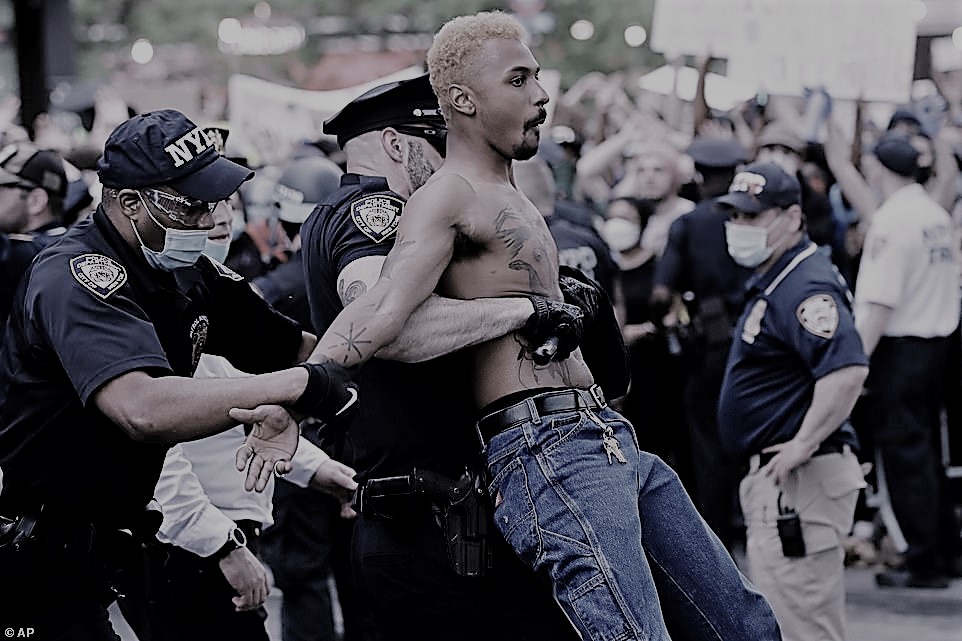
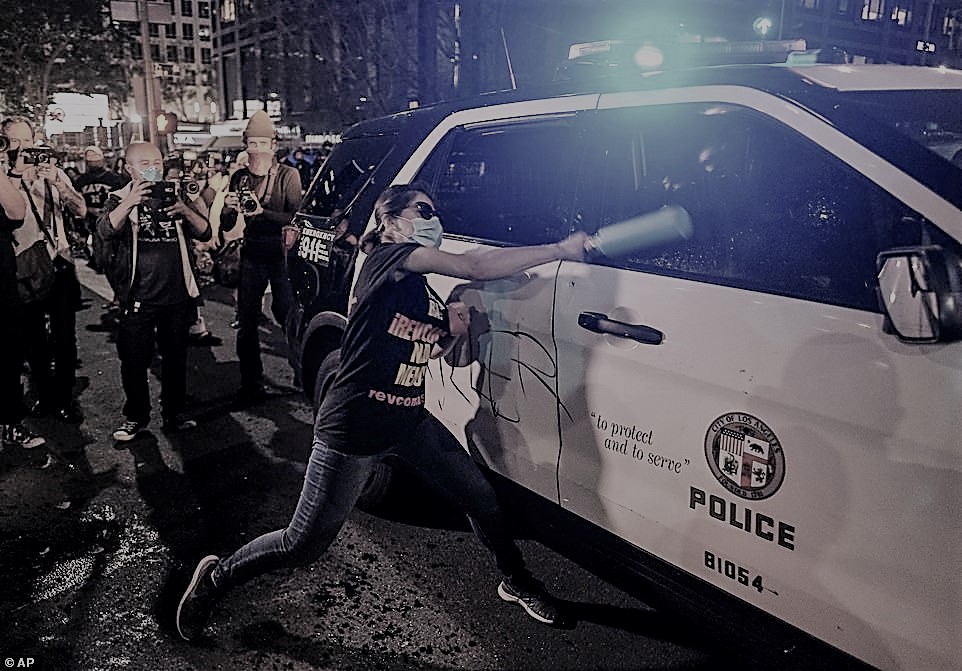
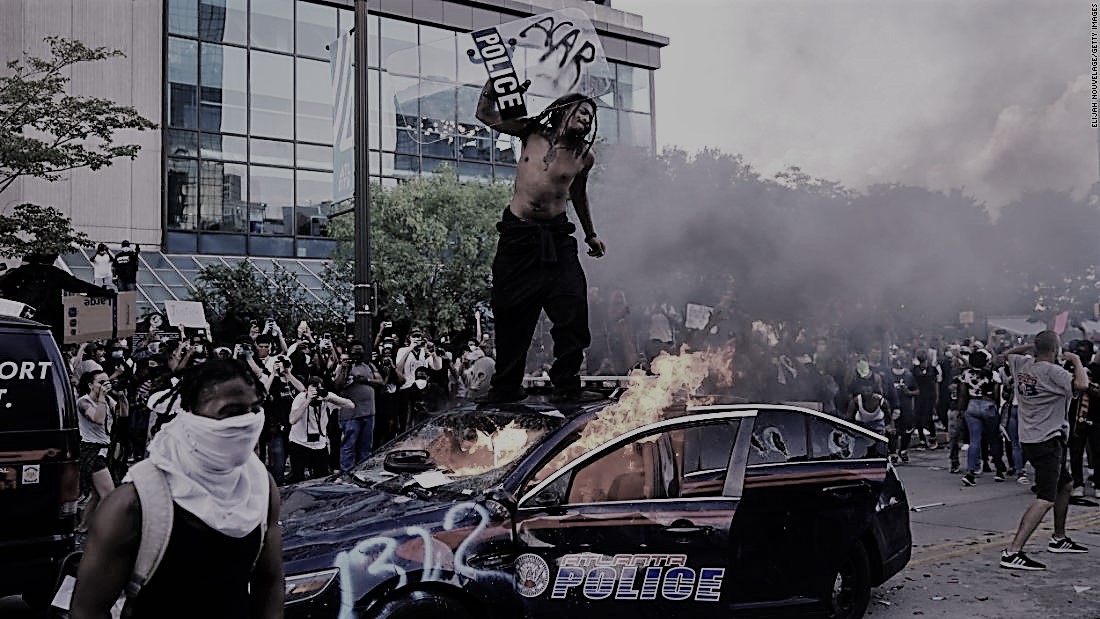
After the riots that followed the death of Floyd, America was forced, for a fleeting moment, to confront what the discerning already knew: that its law enforcement is not a pillar of order but a monument to corruption. The spectacle stripped away the last tattered illusions of nobility; the uniform was shown for what it truly is—a costume for hired brutality. The police, once worshipped as guardians of civilization, now stand revealed as its most prolific vandals, their crimes politely notarized by the courts and condoned by prosecutors who mistake cowardice for professionalism.
Let us dispense, then, with the sentimental nonsense of “good cops.” There are none. The phrase itself is an insult to language.
Why, you ask? Because within that brotherhood of mediocrity, deceit is the coin of the realm. The moment one officer forges a report, invents a story, or lies under oath, all others are expected to echo the lie. Solidarity in corruption is the single unbreakable law of the profession. Any man foolish enough to cling to integrity will quickly find himself isolated, denounced, and expelled—an apostate from the church of collective dishonor.
The instant a man files a false report, he ceases to be an officer and becomes an accomplice to moral collapse. And yet, in California, this transformation is considered career advancement. There, corruption is not an aberration—it is a rite of passage. To imagine a “good cop” in California is as absurd as imagining a chaste courtesan; the contradiction is too profound to exist.
Some will bleat that they “had no choice.” How tedious. One always has a choice—to resign, to stand, to refuse. The difficulty is not moral but material: resignation does not pay the mortgage, and honor has no pension plan. So they remain—miserable functionaries of violence, polishing their badges while the republic rots around them.
Yet, to single them out would be naïve. The police are but the visible tentacles of a larger creature, one whose heart beats in the courthouse. The judges, prosecutors, and lawyers—those dignified parasites—depend upon the chaos their police create. Every arrest, every scandal, every shattered life is fuel for their industry. The more society fails, the more lucrative their work becomes. Misery, in California, has been nationalized; despair is now a government contract.
Thus the courts and the constabulary exist in perfect symbiosis: the brutes create victims, and the bureaucrats process them. It is an exquisite little machine, engineered for perpetual failure. And since its prosperity depends upon decay, the system cannot be reformed without starving its operators. This, I suspect, is why the American justice system guards its dysfunction with such jealous devotion—it is, quite literally, its lifeblood.
One hesitates to use the term “national security,” for it implies the existence of a nation capable of defending itself. But it is true enough that this diseased alliance between the police and the judiciary poses the only genuine threat the United States has ever faced—one born not from invasion, but from within.
This is the death struggle of a society that has mistaken brutality for strength and bureaucracy for civilization. Its institutions collapse not with revolution, but with the soft sound of paper being signed. Children suffer, the innocent are devoured, and the public, lulled by moral platitudes, accepts it all as necessary for the preservation of the Californian myth.
My own children, as I have said, were simply fed back to the wolves—just another administrative detail in the empire of indifference. The same state that weeps crocodile tears for “the children” will let them perish if their suffering threatens the sanctity of its paperwork.
In such a place, compassion is not merely absent; it is offensive. A dead woman on the pavement, a child gone hungry, a life destroyed by neglect—these are not tragedies but background scenery for the Californian journalist, whose pen bleeds vanity and whose heart has long since petrified. They select their victims with the delicacy of an artist: one story to sentimentalize, another to ignore, all to maintain the illusion that civilization endures.
Anyone of refinement who has walked those streets, who has seen the bodies beneath the billboards, knows better. What parades as morality in California is simply decay with good public relations.
“The Suppression of Evidence by the Californian Regime”
Were your children imperiled, what would you do? Most decent souls would, as the poets say, move Heaven and Earth. Yet in California—that sun-drenched parody of civilization—even Heaven has been annexed by bureaucrats, and Earth is mortgaged to corruption.
From the moment I was denied knowledge of my children’s danger, the police were compromised. Their integrity collapsed at first contact with convenience. And, as night follows day, Child Protective Services joined them in the mire. How do we know this? Because the State of California lied, and then lied again—first to the press, and by extension, to the public.
They might have imagined their deceit would dissolve quietly into that swamp of moral indifference known as the Bay Area. What they did not anticipate was that I would be speaking to you from North St. Petersburg, well beyond the reach of these fucking barbarians, and free, at last, to expose their perfidy.
From the very outset, every soul connected to this case—police, social workers, clerks in their air-conditioned stupor—knew my children were in peril. They knew the mother had deceived them. They knew their own reports attested to abuse. Yet they persisted in defending the abuser while vilifying the protector.
Why? Because to admit the truth would be to acknowledge their own complicity. Acknowledgment would rupture the delicate illusion of competence upon which California’s officialdom rests. Instead, the police issued their sanitized fable—a press statement purged of any mention of violence or fault. The media, ever dutiful courtiers to power, repeated the fiction verbatim, neither questioning nor caring.
In this way, the machinery of deceit turned smoothly, its purpose achieved: to protect the institution, not the innocent. In time, the false narrative faded into the white noise of the metropolis, that spiritual desert where cynicism has replaced conscience, and nihilism serves as the bureaucrat’s creed.
But consider, for a moment, had they confessed the truth. The questions would have been intolerable:
Why were the children not protected? Why was the father demonized for doing what the state itself failed to do? Why were the young returned to their tormentor? Why, indeed, did every agency—from CPS to the FBI—prefer silence to justice?
The answer is painfully clear: the abuse had to be suppressed, for truth threatened the edifice. My children were sacrificed upon the altar of institutional preservation—their suffering the price of official convenience.
When cornered, administrators feign ignorance, mouthing the refrain “We didn’t know.” But they knew—of course they knew. They chose cowardice. For in this moral wasteland called California, it is better that children perish than that reputations suffer.
And so, these solemn guardians of “justice” busy themselves with the theatrics of virtue, their every gesture a counterfeit of morality. They move Heaven and Earth—yes—but only to preserve the illusion of decency in a state that has forgotten what the word means.
“On the Californian Spectacle of Moral Hypocrisy”


It should come as no revelation that when Colin Kaepernick, in a moment of rare moral courage, knelt in protest of the state-sanctioned barbarism euphemistically called “law enforcement,” California’s journalistic clergy performed their usual sleight of hand. With well-practiced cynicism, they diverted attention from doctrines of legalized murder to the farce of flag etiquette—thus transforming a protest against brutality into an offense against bunting.
In that sun-baked province of vanity and ignorance, the spectacle was predictably grotesque. Bigots set fire to Kaepernick’s jersey, congratulating themselves for this pyre of polyester patriotism, as though burning cloth could redeem their consciences. One might have expected a chorus of moral outrage; instead, there was a genteel silence, interrupted only by the self-satisfied murmurs of those who mistake cruelty for loyalty.
Even Admiral Harris, a man of alleged discipline, could not resist adding his voice to the cacophony. In his zeal to chastise Kaepernick, he trampled upon the very principles of liberty he once claimed to defend, earning the rapturous applause of a pallid audience at Pearl Harbor—a gathering whose moral comprehension could be measured, I suspect, in inches rather than intellect. One might note, with a touch of irony, that while the Navy’s complexion grows darker, its rhetoric remains blindingly white. As for the Admiral, he has since been consigned to diplomatic obscurity in South Korea—a fitting exile for a man whose sense of justice froze long before his posting. Good riddance, indeed.
When California’s journalists turned their pens upon my children, they displayed the same species of moral degeneracy. Their false narratives sustained the peril facing Devin and Brooklynn, for in California, misery is a commodity, and Schadenfreude is the state religion. The media parades the fallen—those crushed by the machinery of inverted totalitarianism—before the cameras like performing animals, for the amusement of a populace too craven to confront its own complicity.
This is the peculiar psychology of the Californian bourgeoisie: to derive comfort from the ruin of others. Watching the unfortunate suffer, they murmur a private benediction—Thank God, it wasn’t me—and drift into their shallow slumber, consoled by Webster Tarpley’s “administrative fascism”, which governs their lives with bureaucratic indifference and social anesthesia.
And thus the ghastly ballet continues: a dance of death performed nightly across the airwaves, choreographed by journalists and applauded by moral invalids. It is California’s truest art form—the ritualized joy of cruelty, refined, televised, and politely ignored.
“California’s Boutique Activism and The Narcissism of Minor Differences”
One must ask, in all seriousness: what sort of people constitute the so-called “Californian majority”? They style themselves liberal progressives—a charming self-deception—yet by the standards of civilized Europe, they would be classified as provincial reactionaries in designer denim. Compare them to the liberal middle classes of Norway or Switzerland, where decency and restraint remain unfashionably intact. Ask a Swiss bourgeois whether he favors the death penalty; nine in ten will recoil at the barbarism. Ask a Californian, and he will likely applaud its efficiency—then hurry off to a yoga retreat to realign his chakras.
Thus the Californian illusion of progress collapses at first touch. The American “conservative” has drifted so far into the hinterlands of ideology that the so-called “liberal” is merely a more polished savage, differing only in vocabulary and the choice of wine. Hence their vulgar infatuation with Trump—a man who merely mirrors their appetites back to them in cruder form.
In California, “boutique activism” has replaced genuine moral or civic engagement. It is a species of performance, a retail morality for those too delicate to confront real suffering. The middle classes pour fortunes into animal shelters, cooing over the fate of poodles while their fellow citizens rot on the pavements of Los Angeles. They call this compassion; it is, in truth, narcissism disguised as benevolence.
Do not misunderstand me—who among us does not love a puppy? They are delightful creatures, full of charm and innocence. But puppies will not repair a civilization. They will not build bridges, feed the hungry, or restore moral order. To lavish such sentimental fervor upon beasts while neglecting man is the signature of a decadent people: a society that mistakes affection for virtue.
This same instinct underlies the Californian obsession with identity politics—a preoccupation with the narcissism of minor differences, as Freud might put it. By fixating upon symbolic distinctions, they deftly avoid the inconvenient realities of poverty, wages, and the slow disintegration of civic life. It is a politics of mirrors—each group gazing lovingly upon its reflection while the edifice of society crumbles around them.
In Palo Alto, the plight of puppies graces the front page. Yet a short walk eastward, into East Palo Alto, reveals children hungry, ill, and forgotten. There, no cameras linger, no activists march. Compassion, it seems, does not cross socioeconomic boundaries—it stops at the city limits.
When my own children were returned by the Californian courts to an abusive mother, no one within that gilded moral vacuum dared acknowledge the error. To do so would be to expose the grotesque vanity of their civic creed—to shatter the illusion that California remains humane, enlightened, or even sane. And so, in true bureaucratic fashion, they rearranged reality itself, transmuting failure into narrative, tragedy into policy. Thus the machine continues, perfectly insulated from truth.
Yet what cannot be hidden—what even the Californian imagination cannot disguise—is the spectacle of the streets themselves. Walk through Los Angeles or San Francisco and behold the true face of “progressivism”: a humanitarian catastrophe that would shame a failed state. In Rwandan refugee camps, at least, there is clean water, food, and some semblance of order. In California, the dispossessed live amidst filth and despair, surrounded by those who claim enlightenment while stepping delicately over corpses.
Such is the moral theatre of California—a society drunk on self-admiration, performing compassion while worshiping decay.
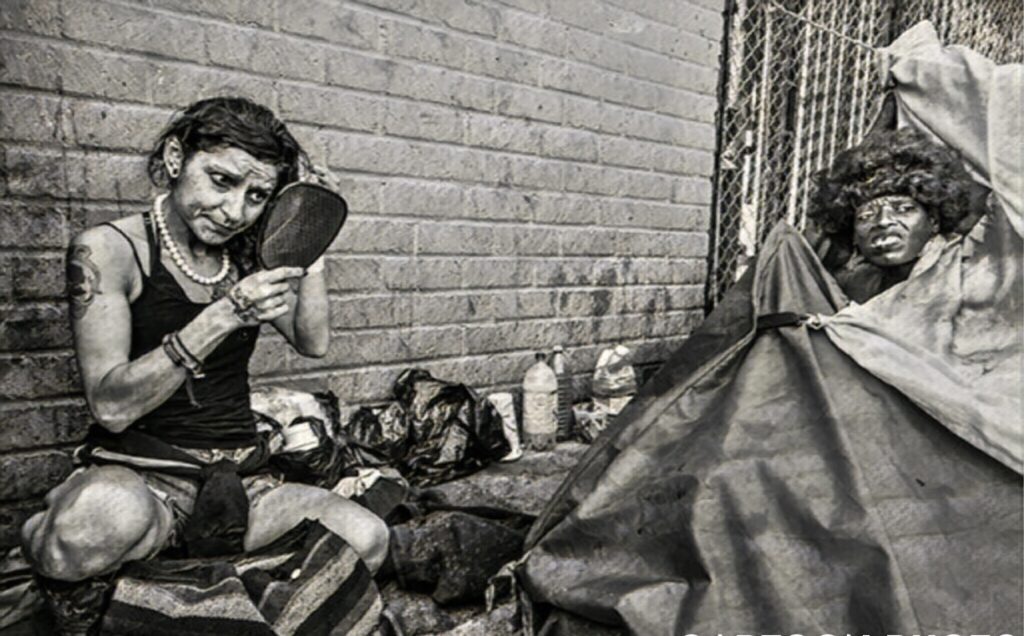
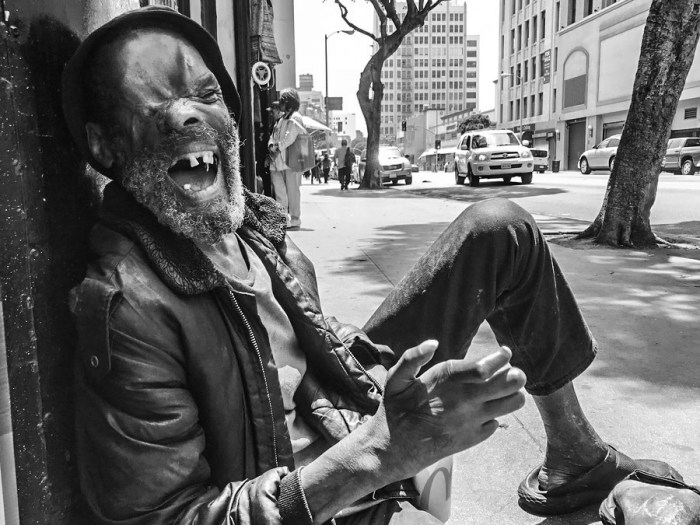
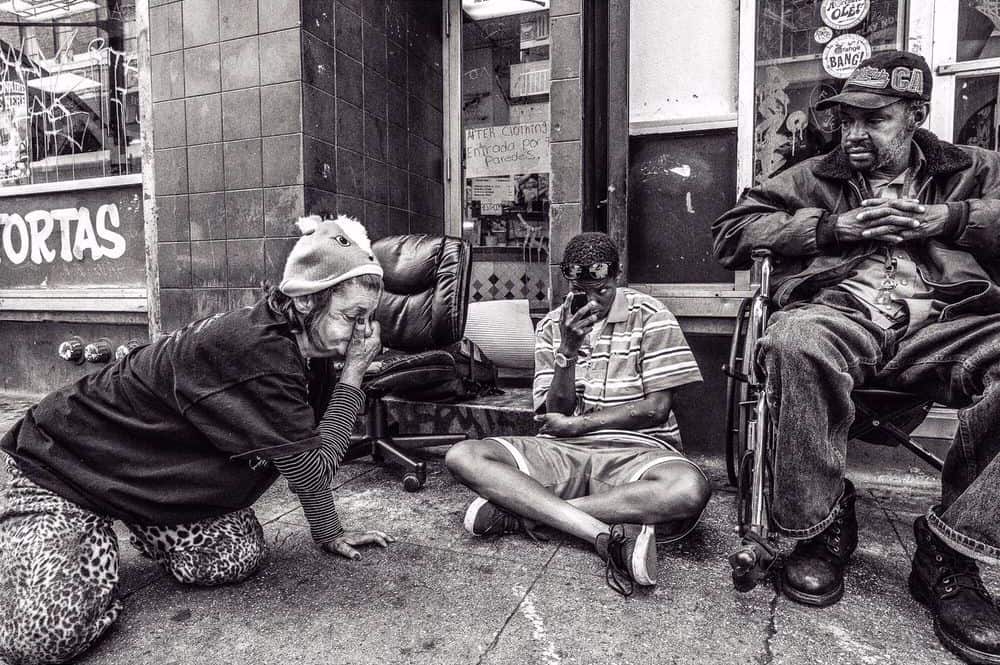
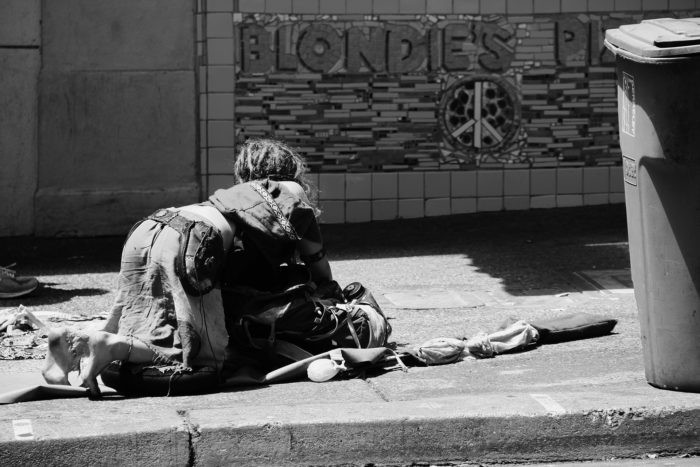
This will not end until exhaustion or collapse.
“When the Collapse Comes”
Civilizations, it must be remembered, rarely die with dignity. Their demise is not a gradual fading but a sudden convulsion—an eruption of chaos that surprises only those too self-satisfied to have noticed the rot. So it shall be with California, and indeed with the United States entire. When the edifice crumbles, none within its borders will be spared the tremors of dissolution.
We have, of course, already glimpsed the dress rehearsals of anarchy—the Floyd riots, for instance, which offered a preview of the American penchant for theatrical rage. In most societies, rebellion is a moral gesture, often restrained, occasionally noble. In America, it is a blood sport, a cathartic spectacle through which the citizen cleanses his conscience with gasoline and fire.
The Japanese, in their melancholy elegance, retreat to forests when despair consumes them. The American, ever vulgar in his emotions, demands that the world perish with him. Add to this a civilian population armed like an occupying army, and one begins to see the outline of the inevitable. It was, one might say, a miracle of bureaucratic incompetence that the congressional mob of January 6 did not manage to annihilate its own legislature. As one of America’s more candid generals warned, “When the collapse comes—be it 2026 or 2030—it will come all at once.”
What Is to Be Done?
Nothing. The system is beyond redemption.
If one happens to labor within the American courts, my advice is mercifully simple: leave. Abandon the courthouse, wipe the dust of that edifice of hypocrisy from your shoes, and do not look back. To remain is to participate in decay, to assist in the daily hollowing-out of a dying economy. The American judicial system subsists, not on justice, but on disintegration. It cannot exist without devouring the very society it claims to defend.
It is a machine that feeds upon ruin, prosecuting the broken while feigning compassion, and congratulating itself upon its cruelty. Each verdict, each fine, each destroyed life—these are the revenues of a morally bankrupt enterprise.
So do the only honorable thing: walk away. Leave the courtrooms empty. Let the system consume itself, unobserved, unloved, and unfed.
Then, perhaps, when the fires have burned through the last of the paper constitutions and televised illusions, America may begin again—chastened, diminished, and finally worthy of reform.
The original compositions was French and machine-translated into English


